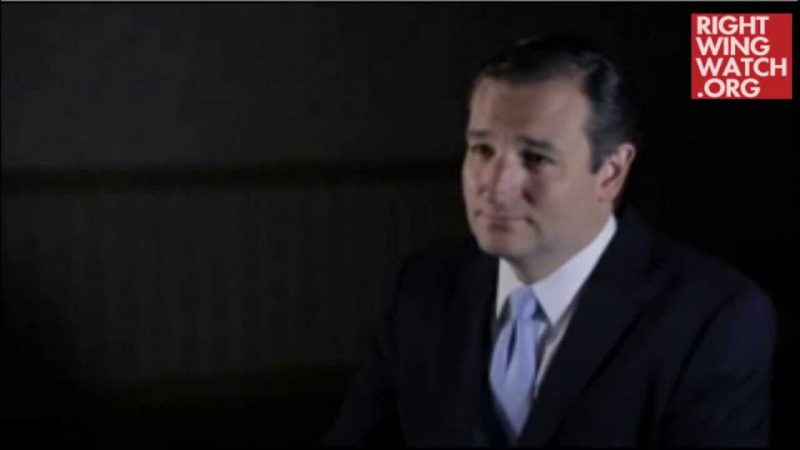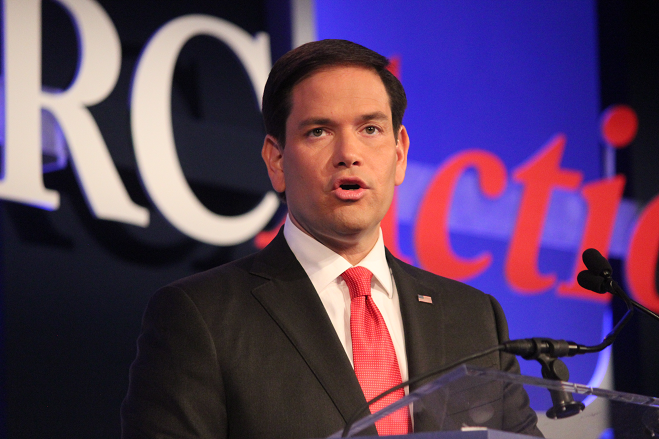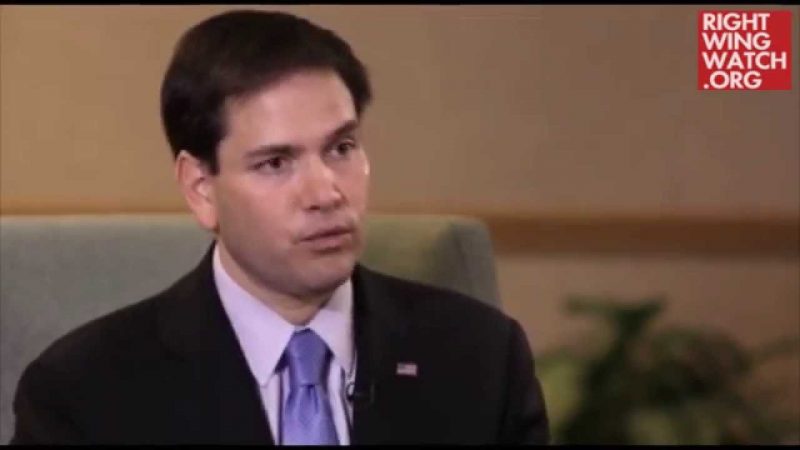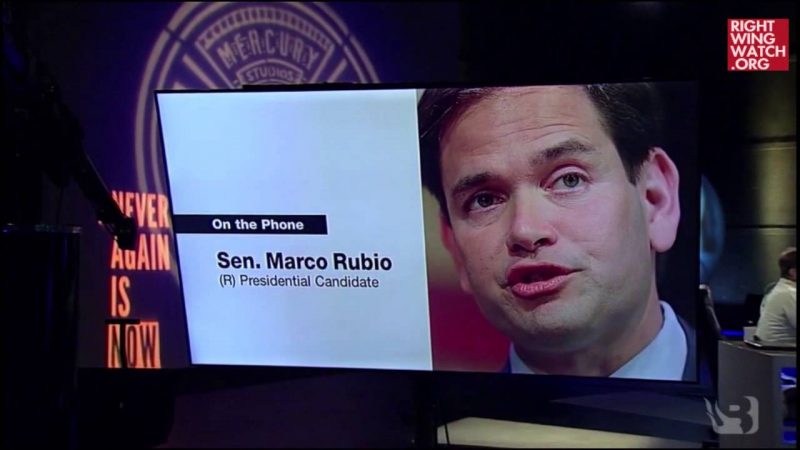As the GOP embraces the reactionary politics and anti-government zealotry of the Tea Party, it is steadily purging “moderates” and empowering extremists. Nothing shows this trend more clearly than the lineup of potential Republican presidential candidates. In this new series, we’ll be looking at the records and promises of the Republican Party’s leading presidential prospects. Next up is Marco Rubio:
The Republican Party has been increasingly willing to cave to far-right purists who want to drive out anyone who they deem to be ideologically impure. The career of Sen. Marco Rubio, R-Fla., is a case in point.
After winning his U.S. Senate seat with Tea Party support in 2010, Rubio tried to follow through on his pledge to work towards a bipartisan bill on immigration reform, helping to lead the efforts of the so-called “Gang of Eight.” But many conservative activists turned against Rubio for daring to sponsor a bill that drew broad support from his colleagues in the Senate and the American people at large. In the end, under pressure from the party’s far-right flank, House Republicans blocked the “Gang of Eight” bill, failing to even put the reform legislation up for a vote.
As the attacks piled up, Rubio began sending mixed messages about his position on immigration reform, even while the Senate debated his bill. After voting for his legislation, Rubio worked hard to redeem himself in the eyes of the increasingly angry base, renouncing his support for the bill he helped to write and promising to oppose future comprehensive reform efforts.
This was all a bit of a turnaround for a politician whose willingness to work on immigration reform had led Time Magazine to dub him “The Republican Savior.”
Instead of leading his party, the Florida senator presented a textbook study in how to cave to the party’s most extreme fringe: denounce past positions and then try to scramble as far to the right as possible.
After the “Gang of Eight” debacle, Rubio tried to score points with anti-immigrant activists by facing off with Dreamers who called him out for “flip-flopping” on his stance on comprehensive reform and using baseless right-wing talking points to denounce relief for young undocumented immigrants. The senator briefly threatened to use a budget standoff to block President Obama’s executive actions on immigration, but eventually said that Congress should back down and fully fund the Department of Homeland Security.
Apparently fearing that his former stance on immigration has poisoned his image among conservative voters, Rubio has now embraced a whole host of right-wing causes in an attempt to win them back. Rubio pushed for a government shutdown over the Affordable Care Act, denounced a bipartisan budget deal that was derided by many Tea Party activists and criticized minimum wage laws.
The senator also boasted that he does not accept the consensus among climate scientists that human activities have an influence on climate change.
“I do not believe that human activity is causing these dramatic changes to our climate the way these scientists are portraying it,” Rubio said. “I don’t agree with the notion that some are putting out there, including scientists, that somehow, there are actions we can take today that would actually have an impact on what’s happening in our climate. Our climate is always changing. And what they have chosen to do is take a handful of decades of research and — and say that this is now evidence of a longer-term trend that’s directly and almost solely attributable to manmade activity.”
While speaking with Fox News pundit Bill O’Reilly, Rubio insisted — falsely — that “surface temperatures [on] the earth have stabilized.” He also failed to disclose, when asked during a press conference, which studies he has relied on for his claim that climate change is a myth, instead choosing to simply ignored the question and vowing to oppose efforts to “ban all carbon emissions in the United States,” something that no one is proposing.
In addition, Rubio has kowtowed to the Religious Right by mocking the separation of church and state, warning of the purported loss of religious liberty under Obama, lambasting abortion rights, blocking a gay judicial nominee, and denouncing the legalization of same-sex marriage in his home state.
He has also embraced the Religious Right’s victimhood rhetoric, insisting that gay rights advocates preach “intolerance” and warning that American society is marginalizing Christians.
The man who was once hailed as leader who could help the GOP become a successful national party in a new electoral landscape seems to have given up on that ideal, settling instead for chasing approval from the party’s extreme and demanding far-right base.








